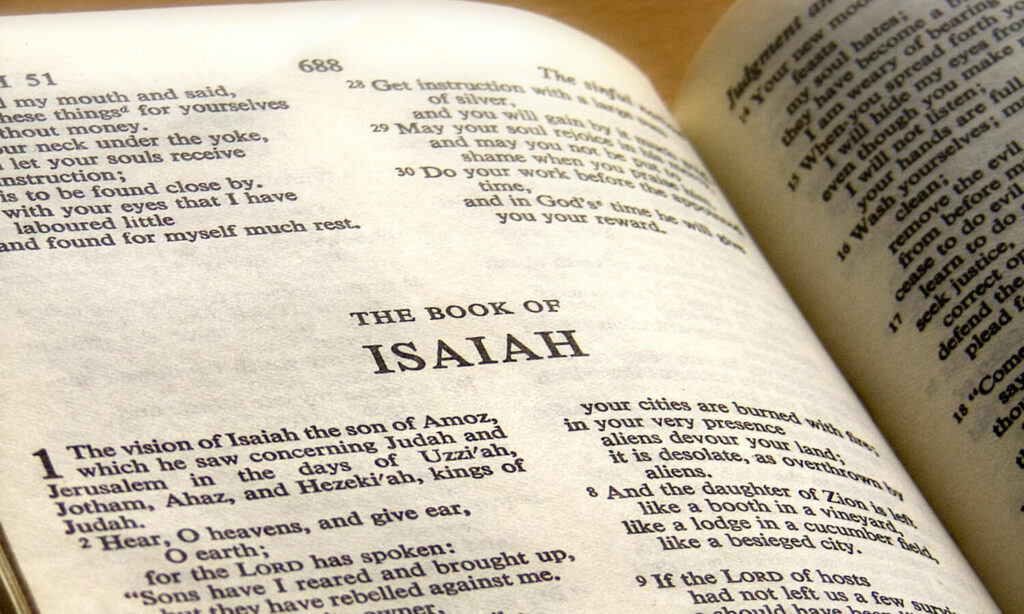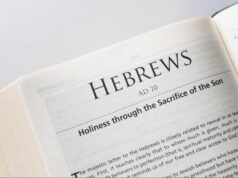By Rev David Munobwa
Some Christians hardly give attention to the authors of the different books in the Bible. As long as they feel they can get inspiration from “the word of God” during devotion, issues of who authored what they read is non-consequential.
On the contrary, in the scholarly circles, even deriving meaning from scripture to some extent depends on who the author of a particular text is.
Biblical scholars always subject particular books to a number of parameters like historical backgrounds, literary styles, and dates of composition, among others to conclude on the author.
Isaiah is one of those books in the Bible that have attracted massive debate among scholars in regard to authorship.
Over centuries, most Bible readers have believed Prophet Isaiah wrote the entire book that bears his name. However, some biblical scholars have suggested other writers.
While almost all scholars agree that Isaiah wrote chapters 1 – 39, there are debates about Isaiah being the author of chapters 40 – 66.
Some attribute these last 26 chapters to disciples of Isaiah, while others argue it was a prophet who lived toward the end of the Babylonian exile, and has been called the Second or Deutero-Isaiah to distinguish him from the first.
More intense study shows that chapters 56-66 were written about him by another prophet referred to as the Third or Trito-Isaiah.
Such proponents have resulted in two schools of thought about the authorship of the Book of Isaiah; the multi-author view and the one-author view.
Bill T. Arnold and Bryan E. Beyer, in Encountering the Old Testament, reveal that those who say more than one person wrote the book of Isaiah: generally base their argument on the time span of the book, different subject matter of Chapters 1-39 and 40-66, and the mention of King Cyrus by name.

Time span of the book
Some who hold a multi-author view suggest that the time span of the book rules out a single author. They see no way Isaiah could have known about the circumstances in chapters 40-66.
Isaiah prophesied from 740 to 690 B.C, but much of Isaiah 40-66 describes the period of return from Babylonian exile that began about 538 B.C.
By the fact that it is not recorded anywhere that prophet Isaiah lived for 200 years, he is ruled out from being the author of some parts of the book.
On the contrary, the one-author proponents argue that from biblical evidence, God knows the future and sometimes reveals it to His servants, the prophets (Revelation 1:2-3, 19).
So, it is possible that God informed Isaiah about the future; hence, describing events without actually seeing them himself.
It is, therefore, given that the One-author view accounts for the book’s time span according to the guidelines the Bible establishes for itself regarding predictive prophesy.
The different subjects
Multiple-author proponents highlight the different subject matter of Isaiah 1-39 and Isaiah 40-66. Chapters 1-39 focus on Assyria, whereas chapters 40-66 focus on Babylon. Chapters 1-39 primarily deal with Isaiah’s generation, whereas chapters 40-66 look to the future.
God’s judgment forms a major theme of the chapters 1-39, but His redemption and salvation lead the way in chapters 40-66.
Such sharp differences suggest the involvement of more than one author. In defense of the One-author view, the proponents base their argument on the human ability to change writing styles according to and depending on different factors like the topic being written about and the purpose.
The mention of King
Some portions of Isaiah like Chapter 44:28 and 45:1 mention Cyrus, the Persian Empire’s first king, by name. It is upon that background that Multiple-author supporters cite the verses as examples of specific information only someone living at that time could know.
Since Isaiah’s ministry concluded long before the time of Cyrus, they argue that someone else must have the references to Cyrus as well as the surrounding material.
One-author proponents generally have responded in one of the two issues on this matter. First, some suggest we should assume God revealed the name to Isaiah.
One other Biblical example of such prophesy seems to occur (1Kings 13:2). Secondly, some suggest Isaiah originally prophesied without mentioning Cyrus, and a scribe later filled in the name when the fulfillment became clear.
Biblical evidence
Evidence from the New Testament also suggests the book came entirely from prophet Isaiah. The New Testament writers appear to attribute both sections of Isaiah to the prophet (Matthew 3:3; Acts 28:25; Romans 9:27-29; 10:16, 20).
In conclusion, it is important to note that the cumulative evidence suggests the One-author view has much to commend it.
The time span of the book and issues of subject matter, vocabulary and style do not present difficulties if we allow God to reveal the future to His prophets and if we grant that One-author can write in more than one style.
Textual evidence and the witness of the New Testament writers also appear to support the One-author view.
With this, the one-author theory of authorship of the Book of Isaiah holds more water.





















